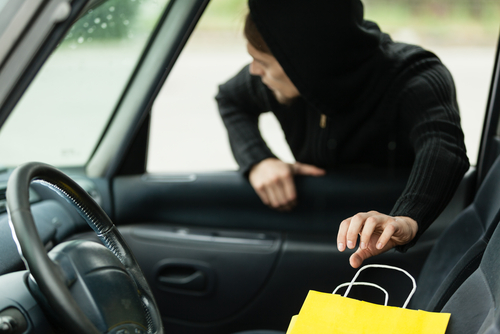In most states, the laws specify that anyone under the age of 18 is considered a juvenile. In many states, the law continues to state that anyone under the age of 12 is considered a child. With this in mind, the legal system has determined that anyone under the age of 18 the commits a state or federal crime in most cases cannot be tried as an adult.
Most crimes committed by non-adults are between the ages of 12 and 17. Because of this, the term juvenile offender or juvenile delinquency is used. However, for general purposes, these titles also apply to anyone who is legally thought of as a child as well.
Unless the crime committed was so heinous that the Court sees no other option but to charge the juvenile as an adult, crimes committed by these offenders are held in juvenile court. It is the intention of these courts to rehabilitate the youthful offenders, even if it includes detention in a juvenile center, instead of sending them to prison.
Common Causes For Juvenile Delinquency
When you think of young people committing crimes, you have to ask more than how can we rehabilitate them. You have to take a step back and ask how can we prevent this from happening. There has been extensive research conducted on juvenile crime, and they have uncovered some of the leading contributors to this type of behavior.
Schooling
Children that have trouble in school, whether it is attendance issues or difficulty with learning, have been found to have a higher incidence of committing a crime. School provides children with more than just a place to learn. School also provides a very structured atmosphere that teaches children how to function within guidelines.
The act of going to a class for a specific amount of time or having to arrive at a specific time teaches responsibility. Good attendance and making sure that the children comply with the rules is essential for them to learn good decision-making skills.
Addressing issues with learning problems is also a way to help kids not feel as if they need to turn to something else to feel good about themselves. Children who struggle in school often feel left out or feel as if they do not belong. This often leads them to turn to groups of kids that feel the same way and leads to hostility towards the system. Feeling like an outcast at school is one of the most common attributes found in children who commit crimes.
Family Life
If a child has a rough family life, it is more likely that they will fall into criminal activity. Parents who are not emotionally or physically available to guide and care for their children cause these children to feel empty and lost and this can lead to trouble. In an effort to fill this void, many children turn to crime.
Some psychologists believe that turning to crime is a way for the children to gain the attention of their parents, even if it is for a bad reason. Others believe that these juveniles turn to crime because they lack moral guidance from their parents and simply do not know any better. And still, others believe that the children are only copying what their parents themselves are doing.
Violence
Violence at home or violence from peers is another major factor in juvenile delinquency. Children who are being physically or emotionally hurt will lash out in a variety of ways. For some, they turn to petty crime for reasons only known to them. For others, these children, in turn, become violent and their criminal acts reflect this rage.
The violence of any sort can be very damaging to a child who does not know why this is occurring or how to protect themselves from the abuse. Abuse is another one of the leading factors of juvenile crime.
Substance Abuse
Substance abuse can affect an entire family unit. If a parent, sibling or other close relative has a substance abuse problem, the child could easily develop a problem themselves or suffer from other forms of abuse by the addict. Substance abuse takes its toll on the young in many ways.
Children with addictions may find themselves in positions to steal or otherwise earn money to get the “fix” that they need. They may also find themselves seeking money for their loved ones who have an addiction problem. Another factor is stealing for food since many addicted parents fail to feed their children properly.
Peer Pressure
For as long as there have been groups of kids that hang out together there has been peer pressure. Kids want to make their friends happy and stay as part of a group. It is just human nature. Adults do this as well.
Being in the wrong group, however, can lead to a criminal act. It is very important for parents to know the friends that their children hang out with so that they know what type of peer pressure their kids will experience. While this is not a foolproof way of preventing crime, it is a good way to let your child know that you are involved in their lives.
When Children Commit Crimes
When a criminal act has been committed by a juvenile, it is very important for the parents or guardians of the child to seek out legal representation from a Waukesha criminal attorney that has special attorneys dedicated to juvenile crimes. You want an attorney that understands the difference between juvenile crime and one committed by an adult.
Criminal representation for a child should be geared towards getting the child the help they need to become rehabilitated. Yes, punishment for a crime is part of the process, but the main focus should be on rehabilitation.
Juveniles do not have the same mental capacity as an adult when it comes to making decisions. That is simply a fact. The human brain does not reach its full size until the age of 25 for most people. Children are learning and growing and physically developing. These are all factors that must be considered when an attorney is representing a child in court.
Your Waukesha criminal attorney must be willing to fight to protect the rights of your child as a child and not allow the prosecution to handle this case like an adult, even if the case is being held in juvenile court. Having the right attorney can protect the rights of your child throughout the process.
Everyone makes mistakes. That is a part of life. Children should not be punished for the rest of their lives for making a mistake when they were young. Good legal representation will help the child get the rehabilitation they need so that they can start fresh when they reach adulthood.


